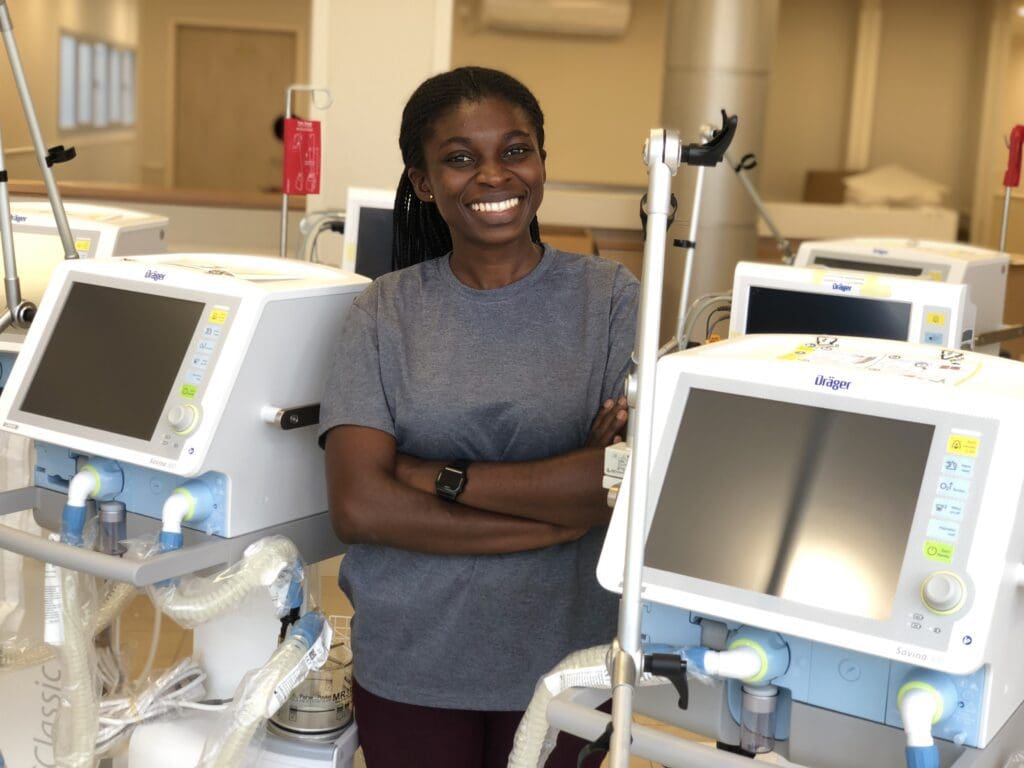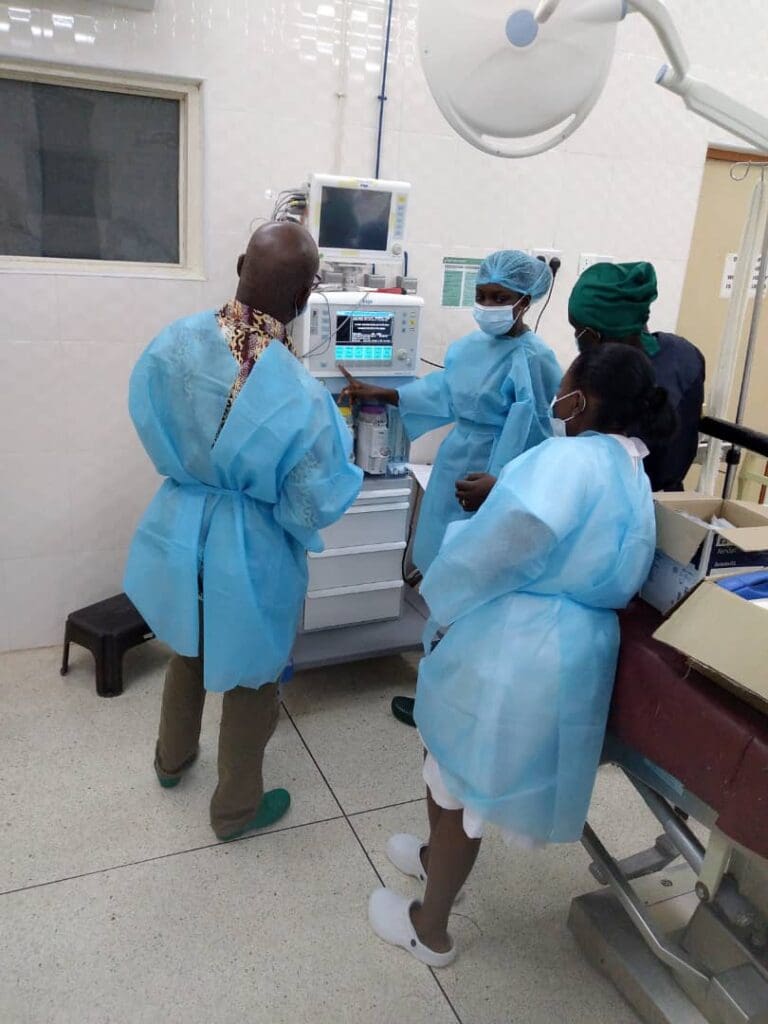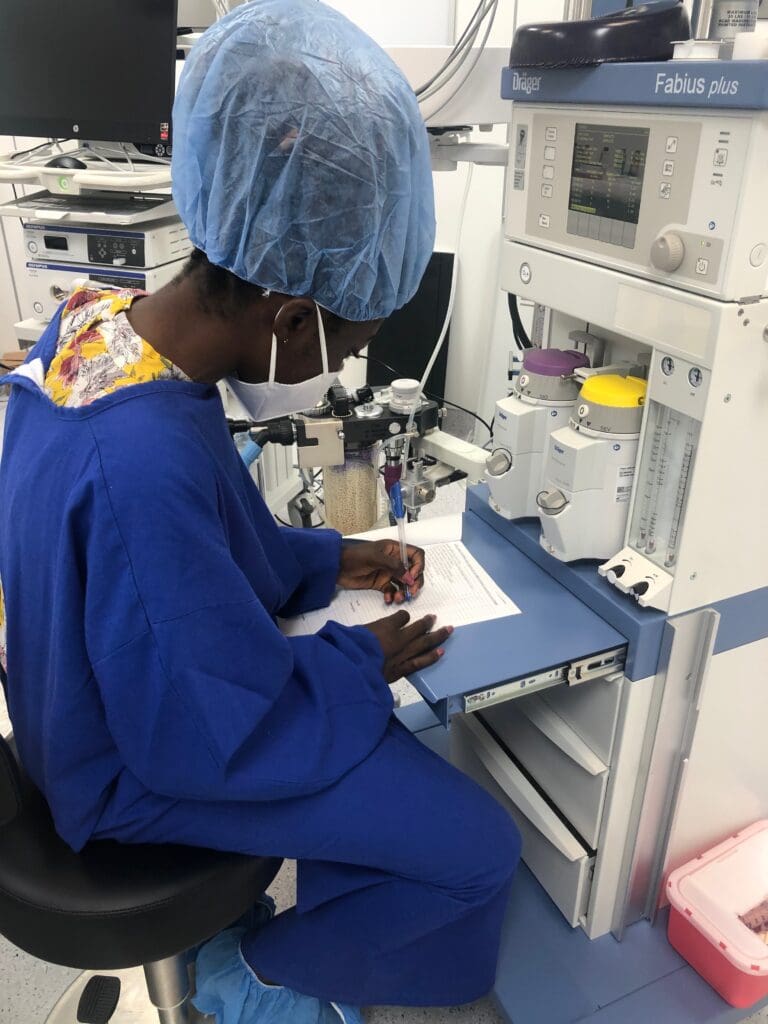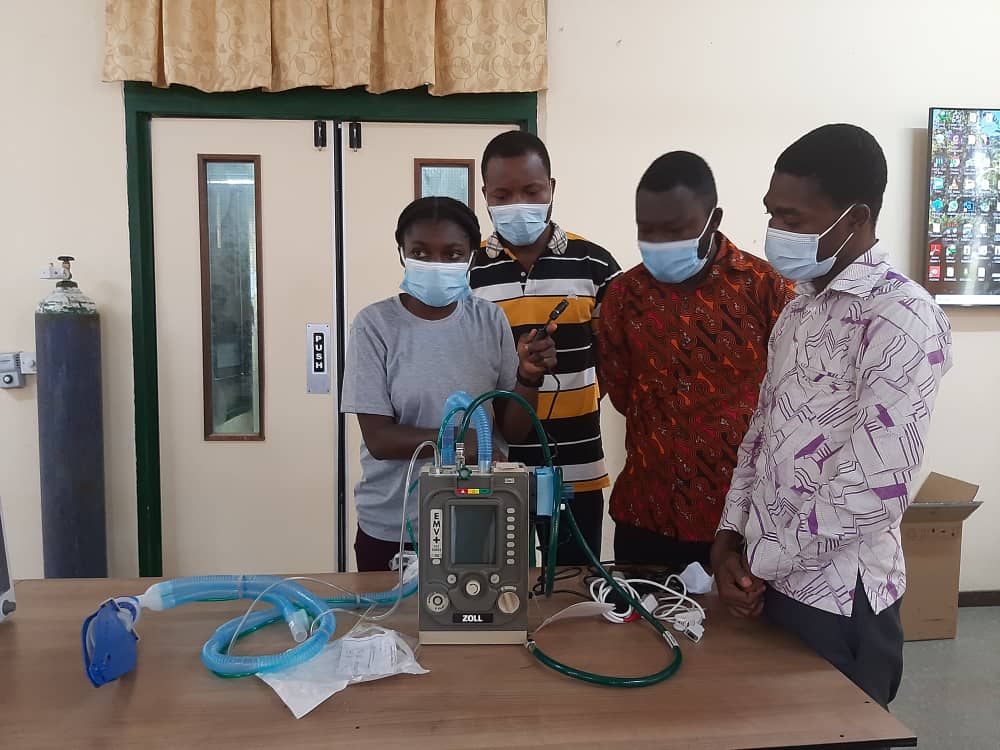Life and work as a Biomedical Engineer in Ghana
Yaa Amoakoa Frempong works as a Biomedical Engineer for LifeCare Technology in Ghana. She is a passionate STEM advocate.
Yaa Amoakoa Frempong discusses working as a Biomedical Engineer in Ghana


Background
Were you interested in science and engineering when you were a child?
Growing up, I realised I had a passion for helping people. So, I thought as I had an interest in studying science in school, why not get a course to help me achieve this?
Why did you decide to study Biomedical Engineering?
I had the privilege of knowing about biomedical engineering after attending a STEM workshop through which I met Professor Elsie Effah Kaufmann for the first time and became inspired. A friend also recommended BIOMED to me, and so here I am today.
Typical Day as a Biomedical Engineer in Ghana
What’s your typical day like?
On a typical day, I install new medical equipment. I also visit sites assigned to follow up on clients and to find out how their medical equipment is managed.
Refresher training and preventive maintenance are planned together with the facilities’ stationed BIOMED as support to departmental staff to improve equipment performance.
Also, if there is a need for any repairs, they are carried out.
What types of equipment do you work on?
I mostly work on equipment like anesthesia machines, ventilators, patient monitors, infusion and syringe pumps, to mention a few.
What are your strategies for working whilst there are people around you and you are under time pressure?
When I am under pressure to work, I still try to keep my composure and ensure that I do the work effectively and not haphazardly.


Explaining technical terms
What are your tips for explaining technical terms to non-technical people? Can you give an example?
For this, I use objects and things around us to create scenarios. I try to give meaning to some of the technical terms to non-technical people so that they appreciate whatever is being discussed.
Mentors
Who were your mentors and who encouraged you?
My parents (my dad especially) and teachers always encouraged me to strive for the best.
I remember always helping my dad fix our DVDs and radio sets. Anytime he was not around, with his guidance, I found my way to make it work. It was always satisfying to see that what I worked on then functioned well.
In Ola Girls Senior High, I was privileged to attend a 3-day STEM workshop in Accra, where I visited the University of Ghana for the first time. There, I met some women in the engineering and maths department. Listening to them, I was encouraged and purposed to do even better amidst any challenge I faced.
Along the way, I have met women in the field who I look up to directly or indirectly. These women in the field are making a positive impact, and I am glad to be a part of it.
Advice to women field engineers
What advice would you give to women field engineers in terms of safety/security/being out in the field?
Be mindful of your work surroundings and learn to adapt quickly in the field. In addition, do not forget to connect and network. It helps maintain client relationships, and they will always return for your services.
What are your tips for feeling confident and not out of place?
During my times in the field, there have been occasions where clients expected to see male engineers but ended up with me, a female. By the work I carried out on site, I showed them that I was there because I was competent for the task given.
Let the work you do speak for itself, and clients will not doubt you and instead will want to call you back for support.
As women, we need to portray confidence, show what we can do and do it excellently. Ask for assistance when you need to because no one knows it all; effective teamwork wins.
Always remember to leave a mark wherever you go. I always work to the best of my ability. I engage and involve the staff in any department I visit. As mentioned earlier, connect and network. It makes them feel heard and makes workflow seamless when they need to reach out to you for further assistance.
Women in biomedical engineering in Ghana and globally
The number of women in field engineering is increasing. How can we help this?
I am elated anytime I visit a facility and see both male and female engineers. It tells me that the status quo is changing. More women are getting involved in STEM and that is awesome.
With a platform like LinkedIn, you are able to connect with other women engineers who are doing great and making an impact in the field. Do not shy away from reaching out to people you believe share the same passion and goal as you. Encourage the younger girls to go into STEM courses. As you share your success stories, share how you overcame the challenges you faced. If you do that, it lets them know the road might not be smooth, however with consistency, focus and looking to your goals, it all comes together just right in the end.


New Engineers
What advice would you give to someone who has just started their first job?
Firstly, be excited about your new job and your impact on healthcare delivery.
Be humble and teachable, and open up your mind to learn from your senior colleagues. They have already experienced the journey you are about to take in the field. For something they do that you already know, watch and listen nonetheless.
Ask questions and try to be up to date with information on the tasks you do.
Do not forget to ask for assistance when you need to and show your appreciation for it.
Always be ready so that you can travel to another location to work when you are needed.


Apart from a strong technical background, what are the three most important skills to have?
Good interpersonal skills because you will be dealing with diverse people from diverse backgrounds and so you need to be able to intelligently accommodate them.
Good communication skills, this will help you know how to convey your message without being misunderstood. More so, it will help you learn to listen, know when and when not to speak.
Good time management skills, as it is important to know how to plan and schedule your work. Then, you will always succeed especially with deadlines and reporting to sites.


Responses